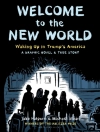This edition includes a modern introduction and a list of suggested further reading.
Murder, divine mandates, even spontaneous human combustion set the scene in a thrilling tale in one of America’s first novels. Clara Wieland lives in virtual isolation in a small farming community in Pennsylvania. Her quiet life turns horrific when she learns she must defend herself against the deadly intentions of her own brother, who believes God has instructed him to sacrifice his family. Clara investigates utilizing distinctive Enlightenment scrutiny. Are the voices her brother hears authentic, or the trickery of a visiting stranger with a penchant for ventriloquism? By transplanting the English gothic novel to America and critiquing that literary form in its new setting, Charles Brockden Brown manages to create a text that is simultaneously a bizarre thriller, a novel of ideas, and a declaration of literary independence for the emerging American nation.
Über den Autor
Charles Brockden Brown (1771–1810) was born to a Quaker family in Philadelphia, grew up amidst the pandemonium of the American Revolution, and emerged as America’s first professional novelist. Between 1798 and 1801 he produced five novels in addition to Wieland, a book-length feminist dialogue (Alcuin), and the celebrated adventure tale Edgar Huntly. His fiction was admired by many contemporaries including such Romantics as Percy Shelley, William Godwin, and John Keats, and served as a major influence to his literary successors Nathaniel Hawthorne, James Fennimore Cooper, and Edgar Allen Poe.












